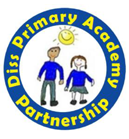Computing
Intent
Technology is all around us and an essential part of everyday life. Our Computing curriculum equips pupils to use computational thinking and creativity which enables them to become active participants in the digital world. It is important to us that the children understand how to use the ever-changing technology as tools for learning and as a means to drive their generation forward into the future. Our curriculum is designed to balance acquiring a broad and deep knowledge alongside opportunities to apply skills in various digital contexts. We want our children to be respectful, responsible and confident users of technology, keeping themselves and others safe in an ever increasing digital world.
Spirituality:
We encourage our children to have an understanding of how technology assists us in our everyday lives and to express awe and wonder at the possibilities that an ever increasing technological future holds. Our Computing curriculum fosters a willingness to explore and reflect and to learn and grow from both our programming failures and successes.
Implementation:
The Computing curriculum can be broken down into 3 strands: computer science, information technology and digital literacy. Our lessons are based on a spiral curriculum. This means that each of the strands is revisited through a new unit that consolidates and builds upon prior learning. Each lesson is sequenced so that it continues the learning from the previous lesson and exploratory tasks are given to foster a deeper understanding of a concept. Lessons are tailored and suitable for all pupils irrespective of their skills, background, and additional needs. Beyond teaching computing discreetly, we give pupils the opportunity to apply and develop what they have learnt across their wider learning in the curriculum. Ensuring the safety of our pupils is paramount. We give children the necessary skills to keep themselves safe and responsible online and to benefit from all the opportunities that a connected world can bring them, appropriate to their age and stage.
Impact
All our children are provided with a Google Education Suite account which allows them access to their learning in school and remotely. Each Computing lesson includes formative assessment which varies from teacher questioning and observation to marked activities allowing the teacher to recognise and address any misconceptions which occur. At the end of the lesson, pupils assess and share how well they feel they have met the learning objectives set. When pupils reach the end of each unit, they are set an end of unit task which allows the pupils to showcase the knowledge and skills that they have learnt throughout the unit. Each academic year, the computing units introduce new challenges and where possible build upon children’s previous learning preparing them for the next stage in their Computing journey.
 Diss Infant
Diss Infant